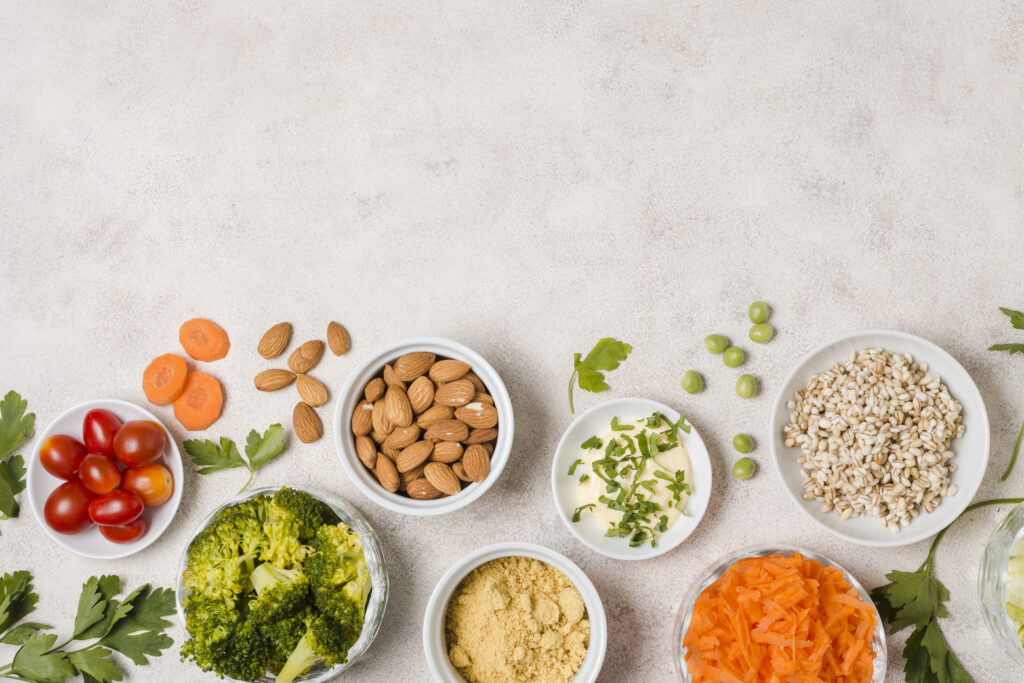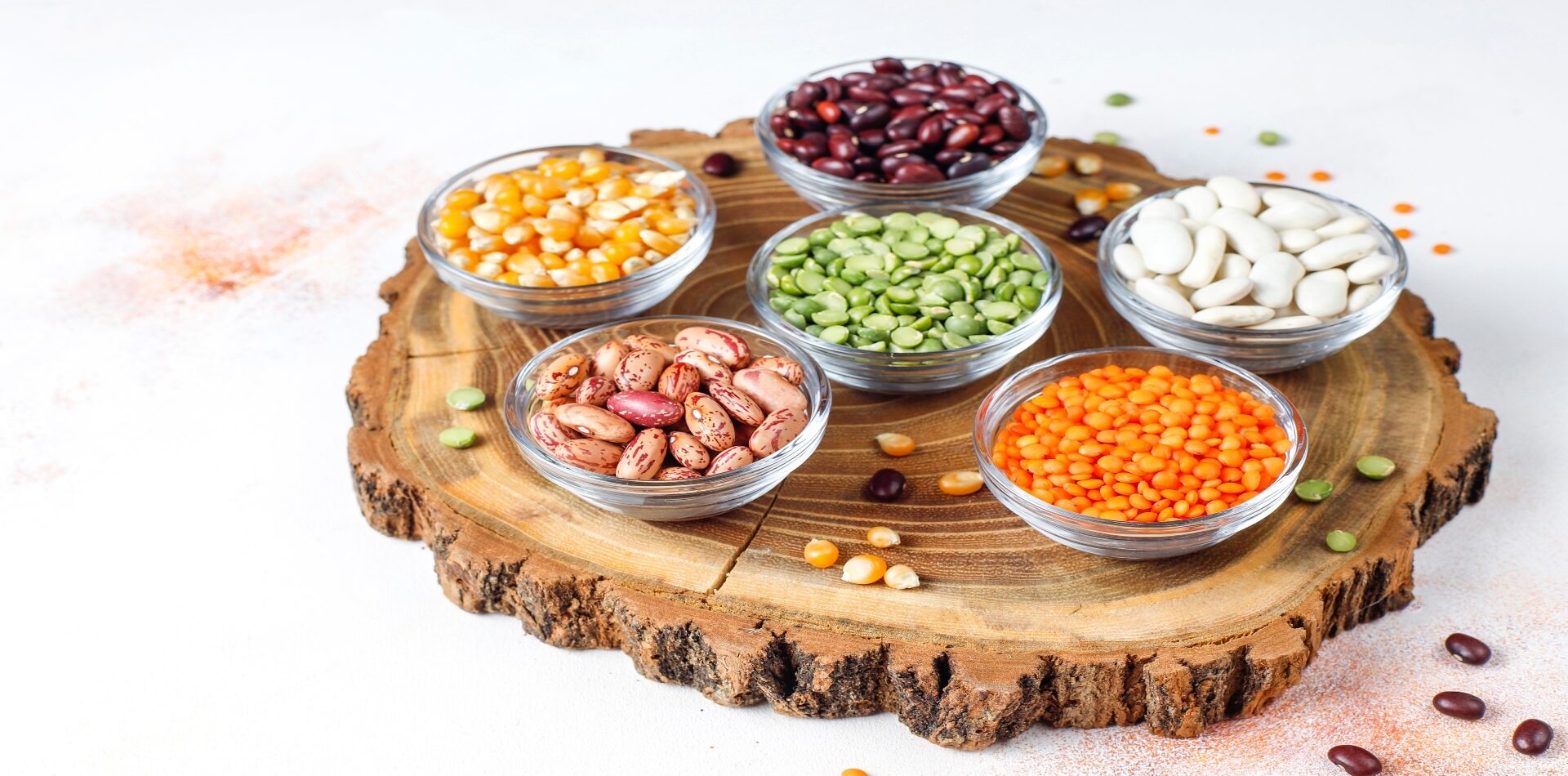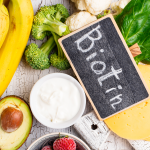The truth is that in 2023, more and more people are shifting towards plant based protein. Whenever we used to talk about sources of protein, the first thing that came to our mind was animal protein sources like dairy products, egg, chicken, fish etc. But now there has been a cosmic shift in the healthcare and nutritional space. Plant based protein is nothing else but protein found in plant foods and plant based foods. All types of whole plant foods like legumes, nuts and seeds and whole grains like quinoa contains some quantity of protein in it along with other essential macro and micronutrients.

No doubt, plant based protein can do wonders for our body because of many vital compositions present in it which are beneficiary to our health. But there are many sources of plant based protein, so which is the best one? In this blog we will understand the ins and outs of plant protein and compare a few of the best plant based protein sources to determine the result!
Main Benefits of Plant Based Protein
- Plant based protein makes available essential amino acids that one needs: Yes, there are various options in plant based protein like quinoa, brown rice, pea protein, oats, pulses. When we include these varieties of plant based protein then we can get all the essential amino acids we need just like we get out of protein sourced from animals.
- It plays a crucial role in decreasing the risk of chronic disorders: Plant based proteins are rich sources of fibre, phyto-nutrients and other essential nutrients. This helps to prevent various health-related disorders like obesity, cardiovascular disorders, cancer, diabetes, strokes, skin issues like acne. Plant based proteins boost immunity and fight against various infections. Overall, they decrease the risk of chronic disorders.
- Plant based protein is gut-friendly: A big benefit of having plant based protein is to have ample amount of fibre both soluble and insoluble. This helps regulate body sugar levels and thus cravings. It also keeps digestive system clear and helps food to move smoothly. Finally, it helps keep our gut flora diverse and also change the type of gut flora that is. This means that plant based protein helps decrease the level of bad bacteria and increase the rate of good bacteria – essential for overall well-being and for keeping one energised
- Plant protein is natural: As protein derived from plant based sources are natural and not synthetic, the nutrients present in them helps to give more effective resul
- Helps in quicker muscle recovery: Plant based proteins supply various amino acids, which aid in faster muscle recovery as muscle repair requires certain amino acids for rebuilding. They also aid in post workout soreness and fatigue too
- Plant based protein helps in weight management: As plant based protein is usually lower in calories, it aids weight loss along with provision of good quality protein. It also helps in weight gain as it contains various amino acids required for building muscles. Plant protein does not contain any cholesterol but other essential nutrients like iron, calcium, omega 3 etc, in the one which are not being processed.
Who Can Take Plant Based Protein?
After knowing about its benefits, many of us might wonder “Who all can have plant based protein?”
Well, the answer is that everyone can consume plant protein as per their protein requirement. As we all need protein for our day-to-day activity and benefit from its nutritional profile, anyone can consume it, whether teenagers or adults. Plant based protein is also beneficial for athletes as they usually face muscle tissue tearing.
The various amino acids present in plant based proteins helps to build up muscle tissues again. Also, plant based protein can be digested smoothly and quickly. It is this the right choice for athletes and people who want to gain muscle strength, build muscle mass, and people who want to manage their weight and tone their bodies.
Thus each and every individual can take plant based protein for their concerns, along with their respective concern diet for beneficial results. But those who are dealing with specific medical conditions first need to consult with their nutritionist and health care workers. Each case and condition is different and requires specific macro and micro nutrients as per their condition and requirement.
A Comparison of Plant Based Protein Sources in 2023
Our team of nutritionists places emphasis on the variety of plant based protein sources. In combination, they can provide various amino acids and a complete nutrient profile for everyone’s needs.
So now let’s get more in-depth knowledge about various plant based protein sources that are available to us and which ones are the most important. Plant based protein sources include quinoa, chickpeas, brown rice, green pea, chia seeds, lentils, beans, tempeh. Some more rare options include oats, buckwheat, spirulina, sprouted grains, nuts, oilseeds, seitan, edamame etc
As almost all wholefoods contains protein, let us know in a little more about the 5 best sources of plant based protein – namely quinoa, buckwheat, brown rice, pea protein powder and oats.
The 5 Best Sources of Plant Protein

- Quinoa- It is one of the best plant based protein-rich sources for vegans and vegetarians. Quinoa is a gluten-free grain which is actually a seed but is considered a pseudo-cereal as it is edible just like other grains. One cup of quinoa provides 8 grams of complete protein which contains all the essential amino acids. It also provides 5 grams of fiber. Thus it is a good source of plant based protein, fibre and other nutrients like manganese, phosphorous, magnesium, folate, iron, thiamin etc.
- Buckwheat- Just like quinoa, buckwheat is also a pseudo-cereal and gluten-free. It is also a fibre and is protein-rich as it provides 6 grams of protein and 4.5 grams of fibre from one cup. It is also a rich source of potassium, magnesium, phosphorous, iron, calcium and vitamins like B1, B2, B3, B9, B6 and K. This plant based protein source also has many health benefits like it helps in weight management, is heart and gut-friendly and also helps to regulate blood sugar levels.
- Brown rice – Brown rice is one of the less processed whole grains, containing bran and germ, thus preserving its nutritive value. It contains various vitamins, minerals, antioxidants, plenty of plant based protein, and other nutrients. One cup of brown rice provides us 5 grams of protein and 3.5 grams of fibre. It is also a rich source of various micro nutrients like thiamin, niacin, pyridoxine, Vitamin B5, iron, magnesium, phosphorous, zinc, selenium, copper, manganese and calcium. Its fibre-rich and brilliant nutrient profile helps to add health benefits like weight management, heart health, reducing the risk of diabetes. It is also a boon for gluten-sensitive people.
- Pea protein – Pea protein is extracted from the protein of yellow peas. It is one of the highest quality plant based proteins. It can aid in muscle growth, weight management and also in heart health. One cup of pea protein powder contains 15 grams of protein, 1 gram of fibre and 5 grams of iron. Thus it is the best source of protein and iron. This plant based protein powder contains essential amino acids and also branched chain amino acids (BCAAs) required for muscle growth. It is observed to be one of the most easily digested plant based proteins
- Oats – Oats are one of the best sources of protein and soluble fibre glucan which provides various health benefits. 1 cup of raw oats provides 10.7 grams of protein and 8.1 grams of fibre. It is also a rich source of antioxidants, especially avenanthramides which helps to lower blood pressure. Also, the beta glucan present helps to lower cholesterol, improves blood sugar levels, aids in weight management and is gut-friendly too. Thus it is one of the plant protein along with the package of various vitamins minerals and antioxidants.
OZiva Organic Plant Protein-

OZiva Organic Plant Protein is one of the best plant based protein powders on the market. It is a blend of Organic Brown Rice Protein,Organic Pea Protein Isolate and Organic Quinoa. It has 30g Complete Plant Protein, 5.2 g BCAAs, and zero sugar. It is a must-have for those who are deficient in their everyday protein intake. This plant based protein is a well-balanced formulation and contains premium-quality ingredients. OZiva Organic Plant Protein is something that can be consumed by your entire family irrespective of age.
It provides a complete amino acid profile, making it suitable for individuals who follow a vegan or vegetarian diet and may have difficulty obtaining all essential amino acids from plant-based foods alone.
This plant based protein powder helps meet the daily protein requirement of the body. Thus it helps support better metabolism, making it easier to build lean muscle, and burn fat. It boosts immunity and aids in faster recovery. OZiva Organic Plant Protein is a complete plant-based protein powder for holistic nutrition over a long period of time. This is unlike other plant protein powders in the market.
OZiva Organic Plant Protein can be consumed by someone who has lifestyle disorder like diabetes, hypertension , heart disease and obesity. It does not contain sugar, soy, cholesterol, salt or trans fat. It is lactose-free so any one who is lactose intolerant or someone with poor digestion can consume OZiva Organic Plant Protein.
It is unflavoured, so we can add it with any food like smoothie, salad , dough of roti, soup, dal etc.
Read more here on plant based protein.
Last modified: August 18, 2023



